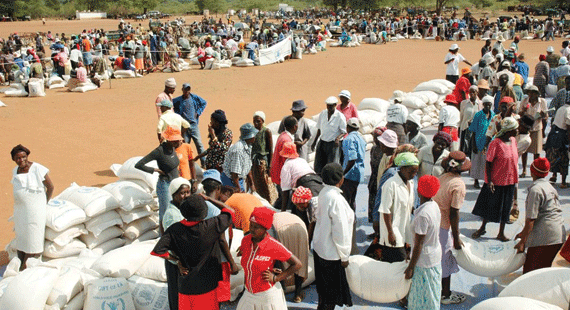
ZIMBABWE’S Seed Act has been the subject of national debate due to its potential impact on seed sovereignty and food security.
Seed sovereignty refers to the right of farmers to save, exchange and sell seeds that are adapted to their local environment, as well as their right to choose which seed they plant. The Act has been criticised for promoting the interests of multinational seed companies and the commercialisation of agriculture at the expense of small-scale farmers who depend on the traditional seed breeding practices.
Seed sovereignty is essential to sustainable agriculture and food security because it promotes the use of indigenous seed and locally adapted seeds known as open pollinated variety (OPV) seeds that are resilient to local climatic and environmental conditions, reducing the need for costly inputs such as fertilisers and pesticides.
Climate change, which has direct impact on food systems, is, however, posing new challenges for countries in terms of food security. Over the past years, global temperatures have risen resulting in heatwaves, droughts, floods and plant diseases. Not only does climate change affect the production of food, it affects access to food, its nutritional value and contributes immensely to food waste.
These have resulted in the reduction of the amount of food produced, leaving millions of Zimbabweans food insecure.
Food security is defined as the physical and economic access to sufficient, nutritious and safe food. According to the Food and Agriculture Organisation (FAO), the four pillars of food security are: Availability, which encompasses the production, distribution and exchange of food; accessibility refers to affordability, allocation and preference; while utilisation focuses on food safety, nutrition and social value; and lastly stability which entails distribution in the value chain.
A survey by HungerMap LIVE indicates that approximately 4,05 million people in Zimbabwe were food insecure in February 2023, meaning that Zimbabwe despite it being a signatory to the sustainable development goals which among other things seek to end hunger, is struggling in terms of food security.
While Zimbabwe is endowed with some of the world’s best soils in terms of growing food crops, the country is surprisingly still unable to feed itself and one of the reasons, in my view, is that the country’s Seed Act carries provisions that are not in tandem with ending hunger, especially given the country’s fragile economic situation and increasing climate shocks.
- COP26 a washout? Don’t lose hope – here’s why
- Out & about: Bright sheds light on Vic Falls Carnival
- COP26 a washout? Don’t lose hope – here’s why
- Out & about: Bright sheds light on Vic Falls Carnival
Keep Reading
The Seed Act provides a framework for regulating the registration, production and sale of seeds in Zimbabwe. This law requires farmers to register their seed varieties, which limits the free exchange of seeds and restricts the development of new seed varieties by local farmers.
Furthermore, the law sets strict standards for seed quality, which may benefit large seed companies with access to advanced seed technology, while disadvantaging small-scale farmers with limited resources. The Seed Act also imposes fines and penalties on farmers who fail to comply with the regulations.
Seed is the backbone of food security. Large-scale commercial farming dominates the agricultural landscape in Zimbabwe, but this has led to the exclusion of smallholder farmers from accessing affordable, locally adapted seed varieties. This has resulted in food insecurity, particularly in rural areas where smallholder farmers make up the majority of the population.
Rural women are primary producers of food and their role is often limited due to inequalities in the control and access of resources. The prevalence of inequality in the agricultural sector generates inefficiencies in the attainment of food security. Furthermore, the issue of food insecurity cannot just be relegated to the availability of food. Women and children are the most affected when there is lack of consistency in accessing nutritious food and are prone to suffering from food insecurity induced diseases and malnutrition.
There is need to amend the Seed Act to liberalise the production and use of seed. By promoting seed sovereignty, farmers in Zimbabwe can gain greater control over their agricultural practices and reduce their dependence on expensive inputs and expensive seeds. This will lead to increased food security, as farmers can plant a wider variety of crops that are adapted to local conditions and are more resilient to climatic changes.
Furthermore, seed sovereignty helps maintain agro biodiversity and contributes to climate resilience. By preserving and utilising local seed varieties, farmers can maintain genetic diversity, which can help ensure that crops are resistant to the changing climate and reduce the risks of disease outbreaks and pest infestations.
- Roselilly Ushewokunze is a social and economic justice activist. She is the coordinator of Food Justice Network and writes in her own capacity. She can be reached on roccabovas@gmail.com










